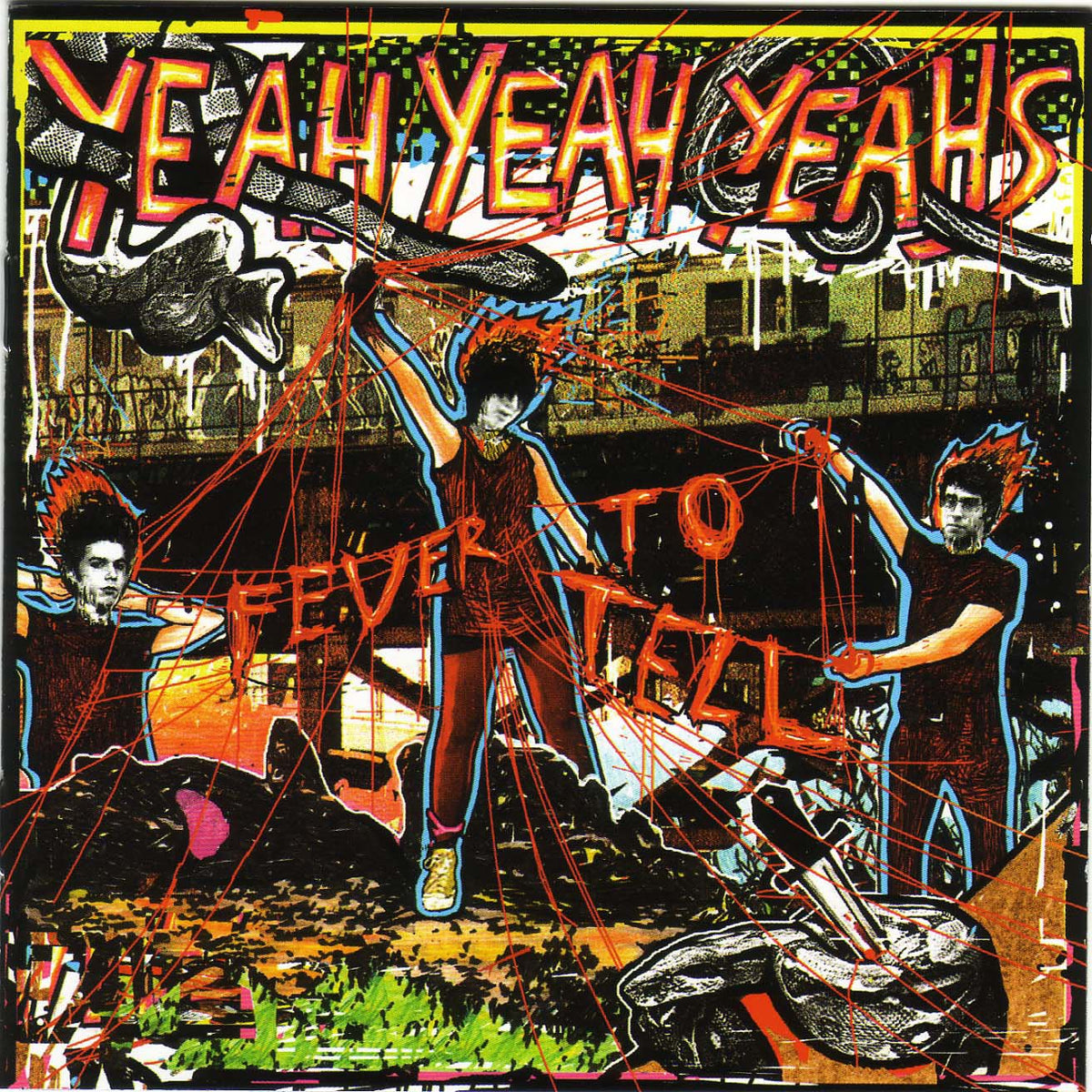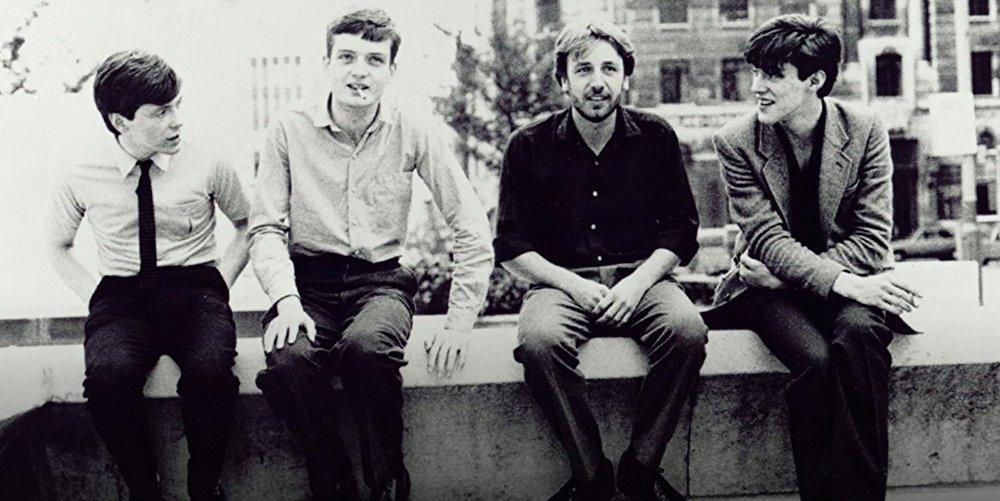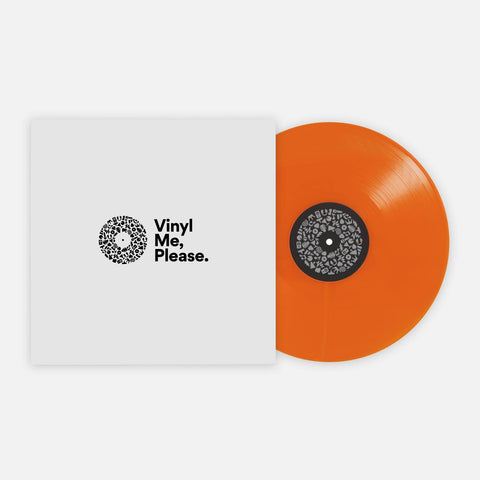The Joy Of Regaining Control
We Talk To IDLES' Frontman Joe Talbot About Their New Album
In a tone that’s equally gentle and imperative, Joe Talbot declares, “It’s not my album anymore, it’s your album.” Talbot’s band IDLES are just days away from releasing their new record, Joy as an Act of Resistance, but Talbot’s not thinking about the album much anymore. “It’s completely out of my control,” he says. “All you can do is be concerned with the things that you have control over.”
He’s speaking over the phone from his home in Bristol where, on this particular afternoon, his father is helping to move some items from his house. “He taught me a lot about compassion by being compassionate and listening to me and allowing me to make mistakes,” Talbot says of his father. He cites his father’s support and love, as well as the support and love of a circle of family and friends, as the steadying preconditions upon which his band’s new record could be constructed.
That’s because Joy as an Act of Resistance is an active dialogue that seeks to reclaim narrative control where socialization and hegemony have previously flattened out difference and individuality. This plight is, in some ways, paradoxical: It deconstructs toxic masculinity, a construct so steeped in and desirous of control, in an effort to regain control of one’s self. But the control isn’t the end; it’s the means. The end is unity, harmony and love.
Talbot says the record is about making “your role in society more productive and positive,” calling it “the proactive response towards the first album.” That album, 2017’s excellent, throttling Brutalism, was, like Joy, an aggressive, violent, minimalist thrash of “motorik” post-punk — Talbot dubs the music “impatient.” But Joy speaks in a different language: where Brutalism was a rather lightless affair, the new record is hopeful, even cheeky. One of the record’s most touching and encouraging traits is that in some instances Talbot, exploring his voice and himself, sounds truly happy.
Talbot likens the tone switch to Aesop’s fable of the North Wind and the Sun, which details a competition between the wind and sun to determine who is stronger. They agree that whoever forces a traveler out of his jacket is the stronger of the two, so the wind whips at the man, but he clutches his coat tighter. The sun, with gentle heat, coaxes the man to remove it.
Talbot thinks the fable still rings true. “If I just stood there shouting about what I hate, I’m not gonna get anywhere,” he says, comparing internet pessimism to the vitriol scrawled on “a male fucking toilet cubicle wall.” “I’ve been through enough to understand that the world keeps spinning. If something savage happens to me, it keeps on spinning.”
Talbot understands this well. Brutalism was wracked with grief over his mother’s death. “June,” a slow, funereal march on the new record, works through the death of his daughter, Agatha, who was stillborn. “A stillborn but still born / I am a father,” Talbot moans on the track.
This blunt exorcism of pain isn’t incongruous with the record’s central idea, though: IDLES want to portray the messiness of life. They just want to do so as part of the machinery of progress. The first lyric sheet for single “Samaritans” contained the phrase, “I hate myself,” but the version that’s on the record has changed to “I love myself.”
“The album’s concept came from a period in my life where I started therapy for the first time,” Talbot explains. “It was a lot about reflecting on the shame I was carrying, the self-loathing, and realizing that all that anger you carry is often just anger at yourself. Until you really tackle all the things that you’ve been carrying inside you all your life, you can’t move forward and change things externally. Perfection is a cultural invention. No one’s perfect.”
The warts-and-all approach is about marrying critique with progress. “That criticism is not a negative thing where you’re whipping your own back, but where you’re like, ‘I’m shit at math and that’s OK,’” Talbot says. “The point being that you learn to love yourself for who you are instead of who you can be. The critique is on popular culture, but also on allowing yourself to be accepting and critical at the same time.”
Hearing this sort of transparency championed is refreshing, but even this Talbot doesn’t let sit unprodded, adding, “You’ll never get true transparency, because as soon as you regurgitate your own mindset, it’s immediately bastardized by the superego. But that’s fine, as long as you’re accepting that as well. Nothing will ever be completely true. I will never be completely honest, because of fears and anxieties and language, and not being completely fluent in my own artistic language.”
It’s this humbling blade, really, that cuts to the core of IDLES and of Joy as an Act of Resistance. It promotes not solipsism, which is subject to distortion from within, but externalization, which can be challenged by, dialogued with, and perhaps even rectified with the help of our community. “Danny Nedelko” is a poppy bash of pro-immigration guitar rock whose name comes from one of Talbot’s friends, a Ukrainian-born immigrant who is now a citizen of the U.K. (“He’s a lot better-looking than I am, but we can’t have it all,” Talbot huffs.) “Great” is a similarly anthemic anti-Brexit churn that implores nationalists to confront and bury their opposition to change.
“I think everything I do, everything I breathe is anti-fascist,” Talbot states. Open-mindedness, he thinks, is the key to happiness. “I’d argue that narrow-minded people can’t be truly happy. The only reason I can see that someone would be narrow-minded or hateful is because they’re scared, or they don’t understand something, and they hate it because of that. If you carry that weight, hating something, being scared of something, you’ll never be truly happy. To me, that’s a fact.”
For Talbot, being “truly happy” seems to always come back to openness and compassion. He and his bandmates show affection at their gigs, embracing and kissing each other. On “Samaritans,” Talbot roars authoritatively, “I kissed a boy and I liked it!” The statement is two things: a rejection of homophobic rhetoric around masculinity, and a celebration of unabashed love and support for one another.
Midway through our phone call, Talbot excuses himself for a moment. His dad is leaving, and he wants to say goodbye. Just before a door slams shut, Talbot is heard calling out, “Thanks for everything, love you.”
You can buy the Vinyl Me, Please exclusive edition of Joy As An Act Of Resistance here.
Luke Ottenhof is a freelance writer and musician with eight toes. He likes pho, boutique tube amps and The Weakerthans.
Related Articles
Join the Club!
Join Now, Starting at $36Pages








